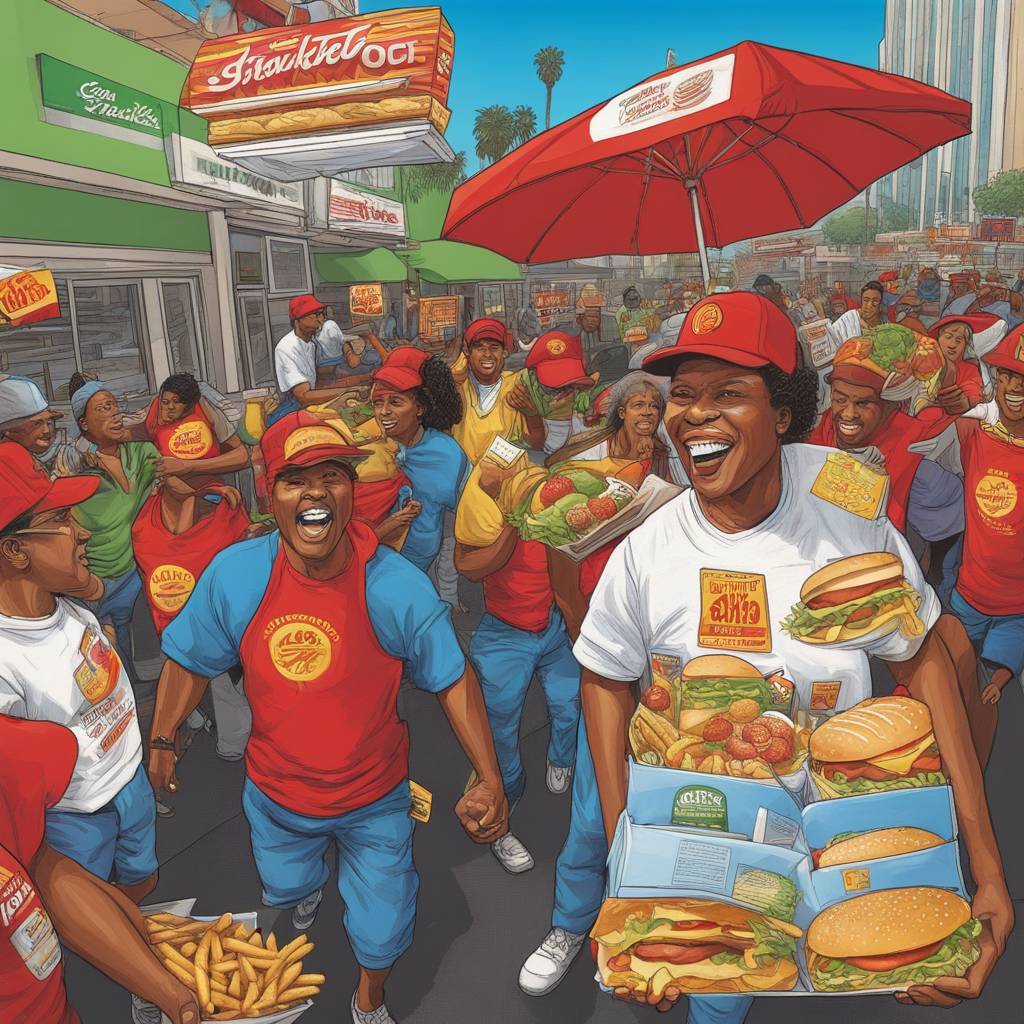California will implement a new law on Monday, raising the minimum wage for fast food workers to $20 an hour. This law was passed by Democrats in the state Legislature as a recognition that many fast food workers are adults supporting families, rather than teenagers working for extra spending money. This increase will provide more financial security for workers in a historically low-paying profession, but may also lead to higher prices, impacting consumers in a state already known for its high cost of living.
Many fast food workers, like immigrant Ingrid Vilorio, have welcomed the $20 raise, as it allows them to rely more on one job rather than seeking multiple jobs in order to make ends meet. However, some franchise owners have expressed concerns about the impact of the law on their businesses, particularly in the midst of California’s slowing economy. For example, Alex Johnson, who owns multiple franchises, is facing financial strain due to the higher wages he now must pay his employees. Johnson anticipates having to raise prices at his stores and may have to consider selling or closing his businesses due to decreased profit margins.
Despite concerns from some business owners, research has shown that previous increases in the minimum wage in California did not result in job losses for workers. In fact, wages have gone up and employment has remained steady, according to labor economics professor Michael Reich. Additionally, many larger cities in California have their own minimum wage laws that set rates higher than the statewide minimum, which means the impact of the $20 minimum wage for fast food workers may be less significant for some establishments.
The $20 minimum wage for fast food workers in California reflects a compromise achieved through negotiations between the fast food industry and labor unions. These negotiations were conducted privately, with both sides agreeing to confidentiality agreements. The law applies to fast food restaurants that provide limited or no table service and are part of a national chain with at least 60 locations nationwide. However, there are exemptions for certain establishments, such as restaurants operating inside grocery stores or those primarily selling bread as a stand-alone menu item.
Overall, the implementation of the $20 minimum wage for fast food workers in California represents a significant improvement in financial security for many workers in the industry. While some franchise owners may face challenges in adapting to higher labor costs, research suggests that previous minimum wage increases have not had negative impacts on employment. This carefully negotiated law seeks to strike a balance between the needs of fast food workers and the concerns of business owners, ultimately aiming to create a more equitable and sustainable work environment for all parties involved.


